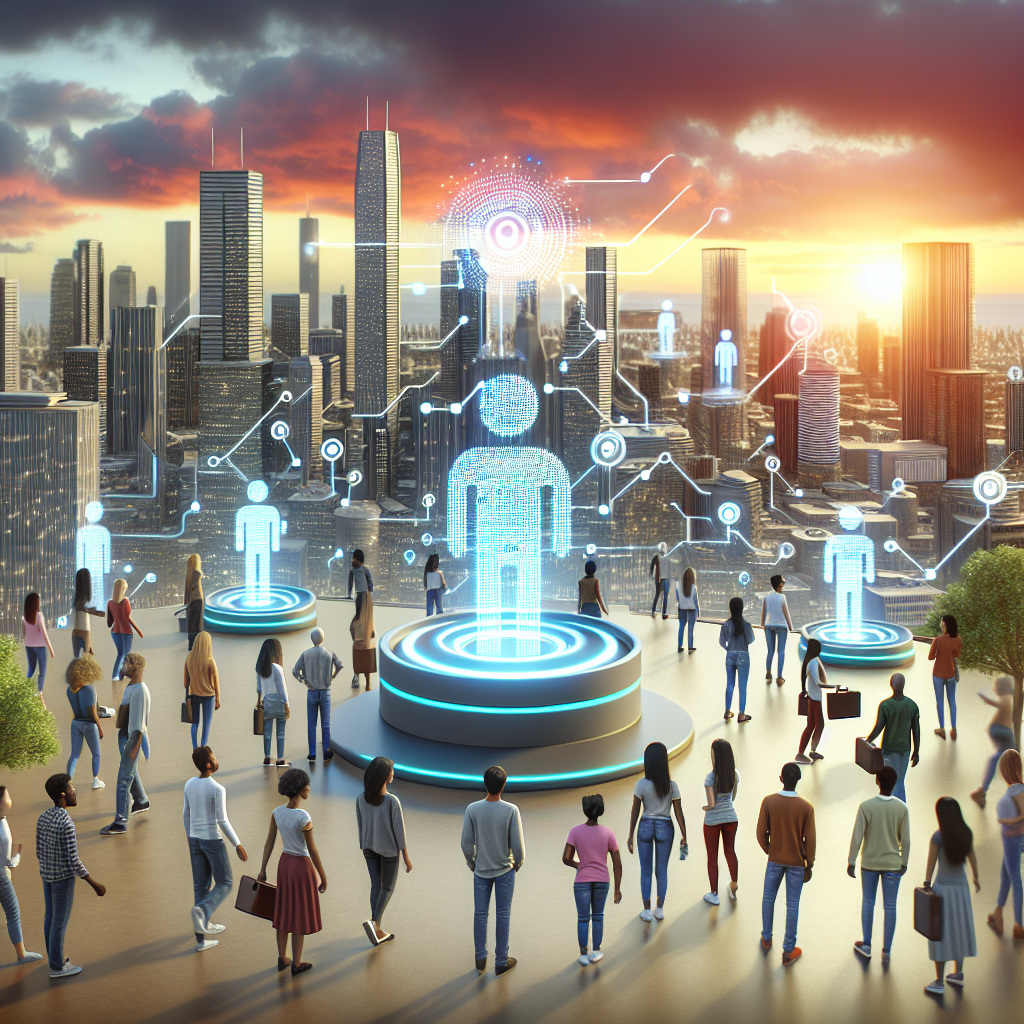In recent years, artificial intelligence (AI) has become increasingly democratized, with more and more individuals and organizations gaining access to AI tools and technologies. This democratization of AI has opened up new possibilities in various fields, from healthcare to finance to education, and has the potential to revolutionize the way we live and work.
One of the key drivers of the democratization of AI is the availability of cloud computing services, which have made it easier and more affordable for individuals and organizations to access the computing power needed to develop and deploy AI applications. Cloud providers like Amazon Web Services, Microsoft Azure, and Google Cloud Platform offer a range of AI services, including machine learning tools, natural language processing capabilities, and computer vision technologies, which can be easily integrated into existing applications.
Another factor contributing to the democratization of AI is the availability of open-source AI frameworks and libraries, such as TensorFlow, PyTorch, and scikit-learn. These tools have made it easier for developers to build and deploy AI applications, without the need for specialized expertise or resources. Additionally, the open-source nature of these frameworks has fostered collaboration and innovation within the AI community, leading to the development of new algorithms and techniques that can be shared and utilized by anyone.
The democratization of AI has also been driven by the rise of AI startups and companies, which are developing AI solutions for a wide range of industries and applications. These startups are leveraging advances in AI research and technology to create innovative products and services that are accessible to a broader audience. From AI-powered chatbots and virtual assistants to predictive analytics tools and autonomous vehicles, the possibilities for AI-driven innovation are endless.
One of the most exciting aspects of the democratization of AI is the potential for AI to democratize access to information and knowledge. AI-powered search engines, recommendation systems, and personal assistants can help individuals find the information they need quickly and easily, regardless of their background or expertise. This has the potential to level the playing field in education, healthcare, and other fields, by providing individuals with the tools they need to make informed decisions and improve their lives.
As AI becomes more democratized, there are several key questions and concerns that arise. Here are some frequently asked questions about the democratization of AI:
1. How can AI be democratized in a way that is ethical and inclusive?
One of the key challenges of democratizing AI is ensuring that it is developed and deployed in a way that is ethical and inclusive. This includes addressing issues such as bias and fairness in AI algorithms, ensuring transparency and accountability in AI systems, and protecting the privacy and security of individuals’ data. It is important for developers, policymakers, and other stakeholders to work together to create guidelines and regulations that promote the responsible use of AI and ensure that the benefits of AI are shared equitably.
2. What are the potential risks and challenges of democratizing AI?
While the democratization of AI has the potential to bring about many benefits, there are also risks and challenges to consider. These include concerns about the impact of AI on jobs and the economy, the potential for misuse of AI technologies for malicious purposes, and the need to address issues such as data privacy and security. It is important for individuals, organizations, and governments to be aware of these risks and work together to address them in a responsible and proactive manner.
3. How can individuals and organizations take advantage of the democratization of AI?
There are many ways that individuals and organizations can take advantage of the democratization of AI. For example, individuals can use AI-powered tools and services to improve their productivity, access information more easily, and make better decisions. Organizations can leverage AI to automate repetitive tasks, gain insights from data, and create personalized experiences for their customers. By investing in AI talent, training, and infrastructure, individuals and organizations can unlock the full potential of AI and drive innovation in their respective fields.
4. What are some examples of AI applications that have been democratized?
There are many examples of AI applications that have been democratized and are now accessible to a wide range of users. For example, chatbots and virtual assistants powered by AI technology are being used by businesses to improve customer service and streamline operations. AI-powered recommendation systems are helping individuals discover new products, services, and content that align with their interests and preferences. Autonomous vehicles and drones are using AI algorithms to navigate and interact with their environments, revolutionizing transportation and logistics.
5. How can policymakers and regulators support the democratization of AI?
Policymakers and regulators play a crucial role in supporting the democratization of AI by creating a regulatory environment that promotes innovation, protects consumers, and ensures the ethical use of AI technologies. This includes developing guidelines and standards for the responsible use of AI, fostering collaboration between industry stakeholders, and investing in AI research and development. By working together with the private sector and civil society, policymakers can help ensure that the benefits of AI are shared equitably and that the risks are mitigated effectively.
In conclusion, the democratization of AI represents a new dawn in technology, with the potential to transform industries, improve lives, and drive innovation. By making AI more accessible and affordable, we are empowering individuals and organizations to harness the power of AI and create new opportunities for growth and development. As we continue to explore the possibilities of AI, it is important to address the ethical, social, and economic implications of AI democratization and work together to ensure that the benefits are shared by all.

